Editor's Choice, 2021: 25 Articles Showing How HNN Covered Another Tumultuous Year
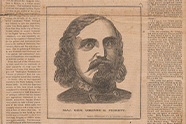
The Cult of the Lost Cause and the Invention of General Pickett (1/13)by Ann BanksGeorge Pickett – Major General George E. Pickett – was our family’s marquee Confederate relation, distant cousin though he was. For a long time what I knew about him was pretty much what everyone learned in 8th grade. |

The Free Press and Democracy in a "Murder the Media" Age (1/17)by Wendy MelilloJournalism as a profession needs to embrace its historical role as a guardian of democracy and refuse to let objectivity work as a shield for authoritarianism; authoritarians won't accept a free press anyway. |

The Assault on Congress and the GOP Faustian Trump Bargain: Notes from German History (1/31)by Jeffrey HerfIt does not seem that even facing the prospect of death at the hands of a Trumpist mob will convince the Republican Party to abandon its bargain with Trump. German conservative elites made a choice to stay the course in the 1930s that led to national ruin and defeat. |
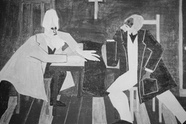
The 1776 Presidential Commissioners Forgot That Dissent is as American as Hero Worship (1/31)by David Wippman and Glenn C. AltschulerAfter insisting that educators avoid “political agendas,” the 1776 Commission Report authors simply assume that their simplistic hero-worship version of history is “accurate, honest, unifying, inspiring, and ennobling.” |
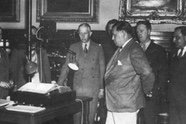
History (and Historians) Need a New Deal (2/7)by Shannan ClarkOnly a program of direct public employment for historians, along with other academics, can lead to a vibrant future for the discipline in which access to careers is expanded, with greater diversity and equity. The history of the WPA cultural projects shows us the way. |
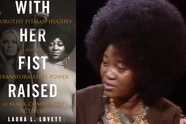
With Her Fist Raised: Dorothy Pitman Hughes and Transformative Community Activism (2/28)by Laura L. LovettRecovering the legacy of New York activist and organizer Dorothy Pitman Hughes means writing "a history of the women’s movement with children, race, and welfare rights at its core, a history of women’s politics grounded in community organizing and African American economic development." |
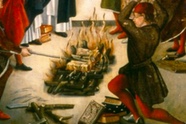
Attacking Critical Race Theory: A Modern Campaign of Conversion? (3/14)by Guy LancasterThere is a recurrent idea among political elites that particular ideas are the wellspring of social discord and strife, and that ridding society of the idea will usher in unity. The Talmud and the 1619 Project have filled similar roles in different eras. |

The Women Who Fought Tooth and Nail for the Flint Sit-Down Strikes (3/14)by Edward McClellandGenora Johnson and the women of Flint, Michigan were the backbone of the sit-down strike campaigns that secured union recognition at General Motors. |
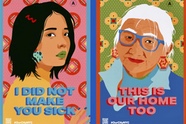
What Comes Next? (4/4)by Stephanie HinnershitzIn 1979, Asian American leaders testified to Congress about problems of discrimination, opportunity and hostility facing their communities. The official response largely enshrined a "model minority" myth that obscured ongoing problems behind a celebratory narrative of inclusion. Waves of anti-Asian violence in the 1980s belied that story, and warn us not to minimize the climate of hostility Asian Americans face today. |

Hidden Stories of Jewish Resistance in Poland (4/4)by Judy BatalionI was fascinated by the widespread resistance efforts of Polish Jews, but equally by their absence from current understandings of the war. Of all the legions of Holocaust tales, what had happened to this one? |
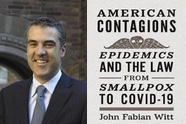
Law, Politics and Public Health: John Fabian Witt on “American Contagions” (4/16)by Robin LindleyLegal historian John Fabian Witt studies the evolution of public health regulation in the US, and says recent Supreme Court decisions to empower religious exceptions to COVID precautions are an unprecedented rejection of public health as duty of the state. He discusses this and more with HNN. |

HNN Turned 20 This Month! Revisit the First Edition (6/13)by HNN StaffHNN turned 20 this month! Help us celebrate by checking out our inaugural issue through the Internet Archive's Wayback Machine. |
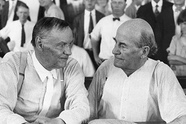
Experts Beware: Is America Headed for a Scopes Moment over Critical Race Theory? (6/20)by Charles J. HoldenWilliam Jennings Bryan wasn't trying to win a debate in the Scopes Trial. He tried – successfully – to draw cultural battle lines. The fact that today's opponents of "Critical Race Theory" are often poorly informed is similarly beside the point. |
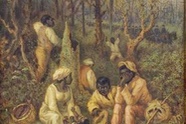
Escape as Resistance for Enslaved Women during the American Revolution (6/27)by Karen Cook BellHistorians have, for too long, failed to recognize how Black women imagined and pursued freedom by escape from slavery during the American Revolution. |

The National Bicentennial Erased Antiwar Activism by Vietnam Veterans (7/4)by Elise LemireThe United States Semiquincentennial Commission is preparing for July 4, 2026 as an opportunity for educating the public about the nation's history. It should avoid repeating the whitewash of recent history in the 1976 Bicentennial celebration. |
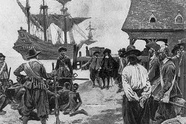
The History of Systemic Racism that CRT Opponents Prefer to Hide (7/18)by Clyde W. FordThe importation of African people to Virginia in 1619 spurred the process of establishing racial hierarchy through law, a historical reality the right seeks to deny. |
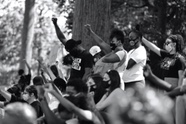
Time to Revisit the History of School Integration in the North (8/1)by Zoë BurkholderThe history of school integration in the North shows that Black northerners have viewed quality education and democracy as core goals, while disagreeing about which educational policies serve those goals best. |

Drug Prohibition and the Political Roots of Cartel Violence in Mexico (8/8)by Benjamin T. SmithViolence is not so much in the DNA of the drug trade as the DNA of drug prohibition. And until both American and Mexican police forces stop treating it like a war, the violence won’t stop. |
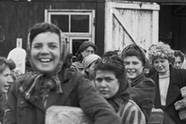
Educating Teen Holocaust Survivors Holds Lessons for Teaching after Trauma (8/15)by Bernice LernerThe author's mother survived Bergen-Belsen and was relocated to an experimental school in rural Sweden. Can her experiences and those of other young women students (and their teachers) shed light on the challenges of educating traumatized children? |

Memo From Irish History: Welcome to Your Future, American Women (9/12)by Laura WeinsteinAfter sustained public outcry, the Republic of Ireland looked to its history of horrific treatment and preventable death of girls and women under its draconian abortion laws and said "enough." Will this example change the course American states like Texas are poised to follow? |
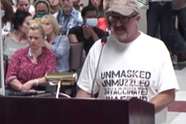
How Evangelical Conversion Narratives Feed "Free Choice" Rhetoric at Your School Board (10/3)by Rebecca L. DavisEvangelical Christianity grew in America by emphasizing the power of individual conversion as a "choice for Christ." This frame explains not only the prominence of Evangelicals among anti-mask and anti-vaccine protesters, but also the frequent rhetorical connections they make between COVID policy and LGBTQ tolerance. |
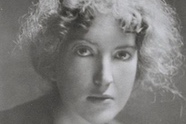
Recovering Women's Reproductive Lives, One Mutilated Record at a Time (10/10)by Catherine Prendergast"Far too often, archives resemble graveyards with marked tombs for men in which a few bones of women are scattered. It’s time to dig up all of the bones and ask them what story they tell." |

Kyle Rittenhouse's Trial Will End in a Verdict. The Nation's Trial By Ordeal Won't (11/14)by Thomas Lecaque"A trial by ordeal was not about miracles or superstition. It was, in effect, about the community making a decision on the innocence or guilt of the party, and then bringing it about." |

Fashion and Freedom from Suffrage to AOC (11/14)by Einav Rabinovitch-FoxFashion, freedom, and American independence have been and are still connected to ideas of women’s rights and equality. |
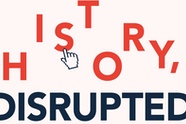
Veracity or Virality? How Social Media are Transforming History (12/19)by Jason SteinhauerHistory is a growing content category on social media, but history content going viral has very little to do with its quality or reliability. The author of a new book on history on social media says historians and readers need to understand how political agendas and content algorithms are shaping history on the web. |